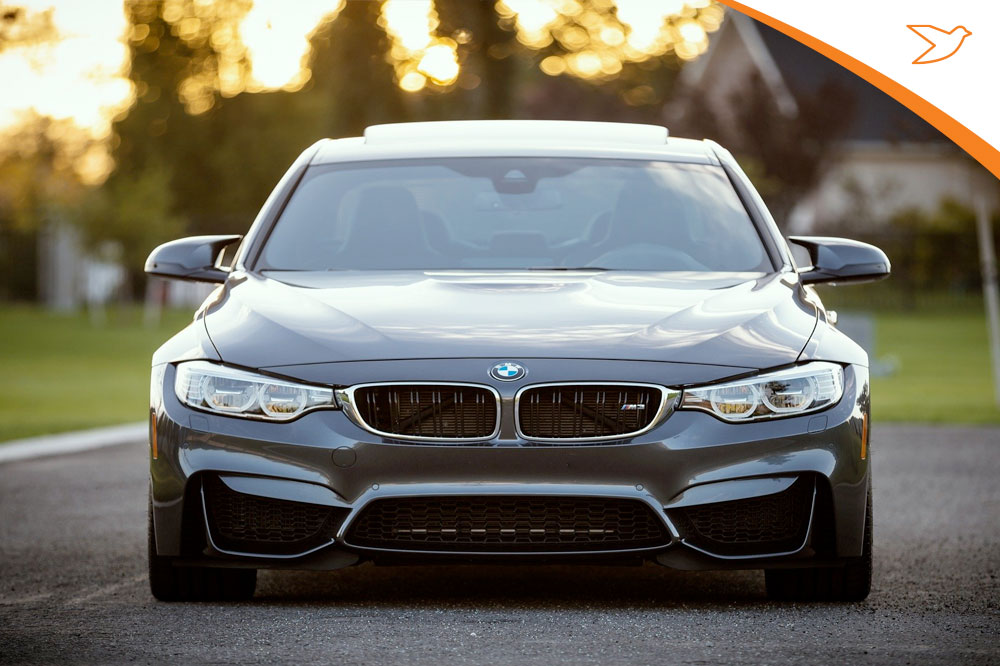Blog
Know This About BIK Before You Buy A Company Car

The idea of buying a company car through your business is a decision you need to weigh up based on the true costs of BIK (Benefit In Kind) before making any decision.
A company car is any car/van or other vehicle that the company purchases for you to use for business purposes.
The vehicle is owned by the company and all expenses relating to the vehicle can be expensed through the company. This includes the usual running costs such as fuel, repairs, insurance and tax.
If you are to use it for both business and pleasure i.e. you use the car/van/jeep for personal use as well as business use then you need to know that there are tax implications for that use.
Unfortunately, for those who use company cars (for ease of explanation we will say car), you cannot claim the full cost of it back in the first year of purchase. Even if you buy the car and pay in full, you may only claim capital allowance of depreciation at a rate of 12.5% of the cost of it each year that you own the car.
And how much you can claim is limited to €24,000 in cars in Category AB and C CO2 emissions. That rate reduces for category D & E emissions by 50% and is not allowable at all for category F & G emissions.
|
Band |
CO2 Emissions – grams per km |
|
A |
0 – 120g |
|
B |
More Than 120g/km up to and including 140g/km |
|
C |
More Than 140g/km up to and including 155g/km |
|
D |
More Than 155g/km up to and including 170g/km |
|
E |
More Than 170g/km up to and including 190g/km |
|
F |
More Than 190g/km up to and including 225g/km |
|
G |
More than 225g/km |
What many companies and company owners are choosing to do is to lease vehicles as that is far more tax efficient. Lease payments can be fully written off. However, there is a reduced pro-rata rate if the vehicle cost exceeds the €24,000 threshold.
If your company is buying a jeep or a van, that is treated the same as other vehicles; however, it will not have the same restrictions as passenger vehicles, i.e. the €24,000 threshold.
Another thing to consider when your company is buying a company car is the BIK (Benefit In Kind) which applies. Benefit in Kind is a tax charge on an employee or director where they have a company vehicle available to them for private use as well as business use.
How BIK is calculated
The BIK is calculated by using the OMV (Open Market Value) of a vehicle and multiplying it by 30%.
In the table below, if the car has an OMV of €40k the Benefit in Kind is calculated as €12k, resulting in a €5,880 charge in tax.
|
OMV |
Rate |
BIK |
|
€40,000 |
30% |
€12,000 (cash equivalent) |
Do not be alarmed when you see the €12,000 in cash equivalent (that is €12,000 charged at your marginal rate).
|
BIK |
Marginal Rate of Tax |
Tax Charge |
|
€12,000 |
49% |
€5,880 |
The good news is that you can reduce the BIK figure in your calculation should you have a lot of business kilometers as per this table.
|
Lower Limit |
Upper Limit |
% of OMV |
|
KM |
KM |
Percent |
|
Zero – |
24,000 |
30% |
|
24,000 |
32,000 |
24% |
|
32,000 |
40,000 |
18% |
|
40,000 |
48,000 |
12% |
|
48,000 |
more |
6% |
Business mileage is mileage incurred in the normal course of business. This could include traveling to appointments, business meetings, and traveling to temporary work sites. Traveling to and from your normal place of work does not count towards business miles. In this context, it’s worth reviewing the Revenue’s definition of what constitutes your ‘Normal Place of Work’ to ensure your business travel fits the criteria – https://www.revenue.ie/en/employing-people/employee-expenses/travel-and-subsistence/normal-place-of-work.aspx
However, for Commercial Vehicles and Vans the rate of BIK is reduced to 5%. Note an N1 Commercial Vehicle which has five seats is classified in the same way as a passenger car for purposes of BIK.
Exemptions
There are two exemptions of note when it comes to BIK and company cars.
- Car-Pools – This refers to cars available and used by more than one employee. Private use of the car by the employee must be minimal and the car cannot be regularly kept overnight at or near the employees home.
- Electric Vehicles – Until the 31st December 2022 there is an exemption preventing BIK arising on electric vehicles made available to employees for business and personal use. This exemption applies where the OMV is €50,000 or less. Where the car costs more a partial exemption is given by reducing the cost of the vehicle to €50,000.
Go to Revenue for further information. http://www.revenue.ie
If you require any further information on any aspect of accounting or tax compliance, we will be glad to help you.



